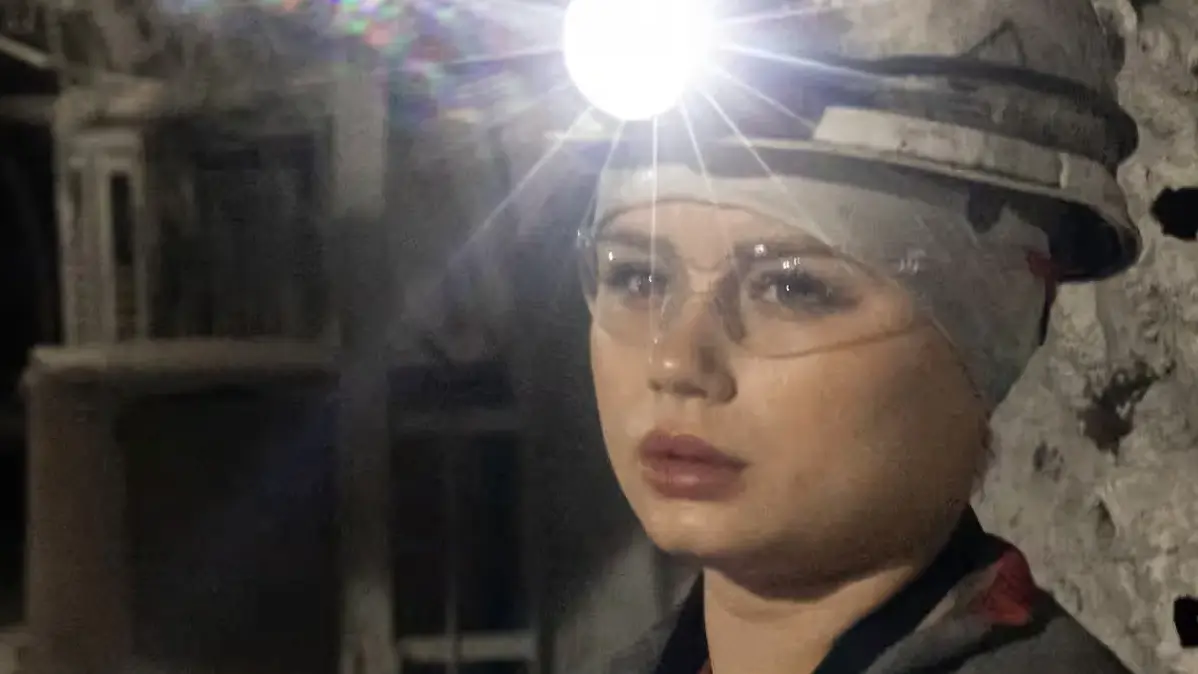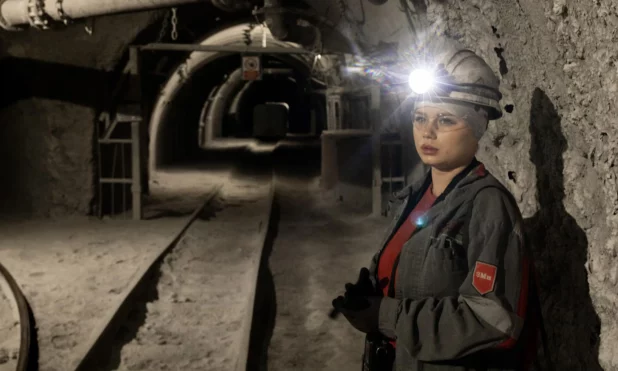Ukraine Civilian POV: A warehouse hit by Russian missiles burn in the background while Ukrainian women work out on a rooftop pic.twitter.com/bO7t1CMUbC
— GoClips (@GoreClipps) June 29, 2024
🇺🇦 ukraine is a failed state! pic.twitter.com/i1AhDGUvd0
— Gabe (@GabeZZOZZ) July 4, 2024
You stupid ass cunt!
Maybe you shouldn’t have told your men to go fight for the dominion over some province you’ve never been to and would never go to!
Enjoy the mines!
CUNT!
Standing in front of a Soviet-era industrial elevator, ready to descend 2,000ft for a gruelling six-hour shift at a coalmine in eastern Ukraine, Ludmyla Vashkatova looked unfazed.
The last thing she saw before stepping into the metal cage and plunging into darkness with dozens of other miners was a towering sign urging workers to take care. “You are awaited at home,” it read, a stark reminder of the perils working at a frontline mine in the heavily shelled city of Pokrovsk.
“At first, going underground was scary, but you soon get used to it,” said Vashkatova, 49, as bare-chested workers emerging from the night shift, their faces darkened by coal dust and their bodies drenched in sweat, passed by her.
Vladimir Putin’s invasion, which saw hundreds of thousands of Ukrainian men serve at the front, has pushed women like Vashkatova down into the mines, taking up traditionally male jobs to keep the country’s economy going.
Nearly three-quarters of Ukrainian employers have complained of workforce shortages, according to a recent study, and in Kyiv intervals between metro trains have increased due to a worker shortage, with up to 10% of the workforce mobilised. Nationwide, there is a 30% deficiency in bus drivers.
If Ukraine’s, a country of 40 million, recruitment started at age 27 and the average age of soldiers is now 43, then most people between those ages are dead. About 22% of their population fits in that 16 year section, cut out the half that’s women. That’s roughly 4 million dead pic.twitter.com/66N4CW7Ukw
— Harvey Birdman Esq. 𓅃 (@putaburdonit) July 6, 2024
A former village school teacher in the eastern Donetsk region, Vashkatova lost her job last year when relentless Russian shelling forced her pupils to turn to online schooling.
While scrolling online, she saw an ad on Facebook from Ukraine’s largest steelmaker, Metinvest, for a job at the Pokrovsk mine, seeking workers to operate machines underground.
“The pay is good and stable,” she said, “which is quite rare these days.”
“I was a teacher but now I am a student again. It is an interesting process,” Vashkatova said, adding that she had a few weeks left of training before she could operate the machinery unsupervised.
To enable women to work underground, the Ukrainian government lifted a law that had previously prohibited women from working in “harmful or dangerous” conditions.
Some have taken the opportunity with open hands as jobs in the battle-ravished region dried up.
Amid the rumble of rail carts and hum of machinery in the dark and dusty labyrinthine network of tunnels, Marina Vykhrevna, 50, stood alongside a group of male workers inside the mine.
Having spent three decades working at a mine above ground sorting dry coal, she welcomed the opportunity the war gave her to train as a quality control inspector underground.
Her salary had doubled to 19,000 (£360), and with the influx of women, a bond of camaraderie had formed. “I think it’s great more women join. The girls are supporting each other,” Vykhrevna said.
…
Violetta Loevska, 21, who recently started working at the mine measuring methane levels, said she saw it as her “duty” to keep it operating, especially since her uncle who worked at the mine had been sent to the front.
“Everyone understands that there just aren’t enough men left. If we don’t work here, who will?” she said as she walked down a tunnel.
Yeah, all the men are dead.
Violetta Loevska, 21.
Now you work the mines.
Ask me how much I care about your problems, whore.
Seriously, ask me how much I care.
ASK ME.

